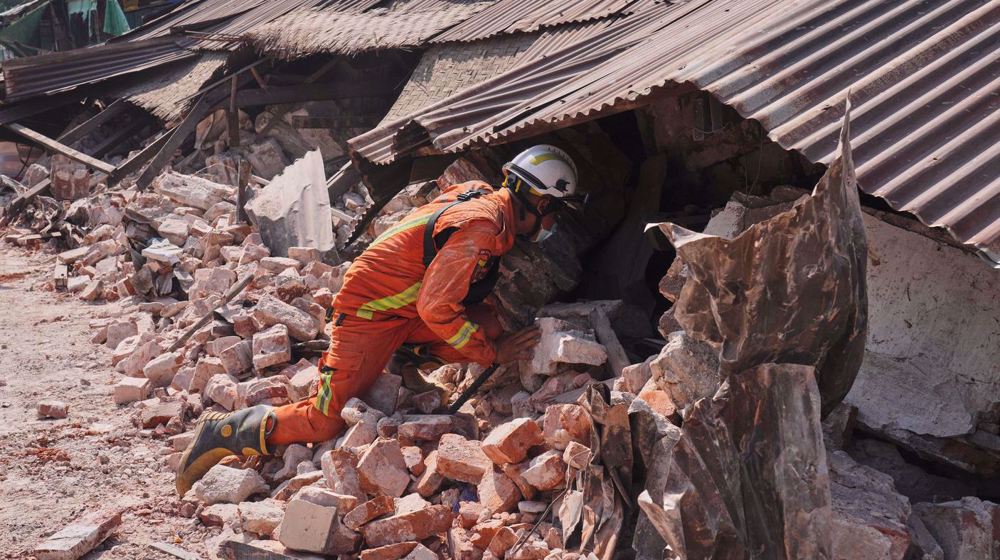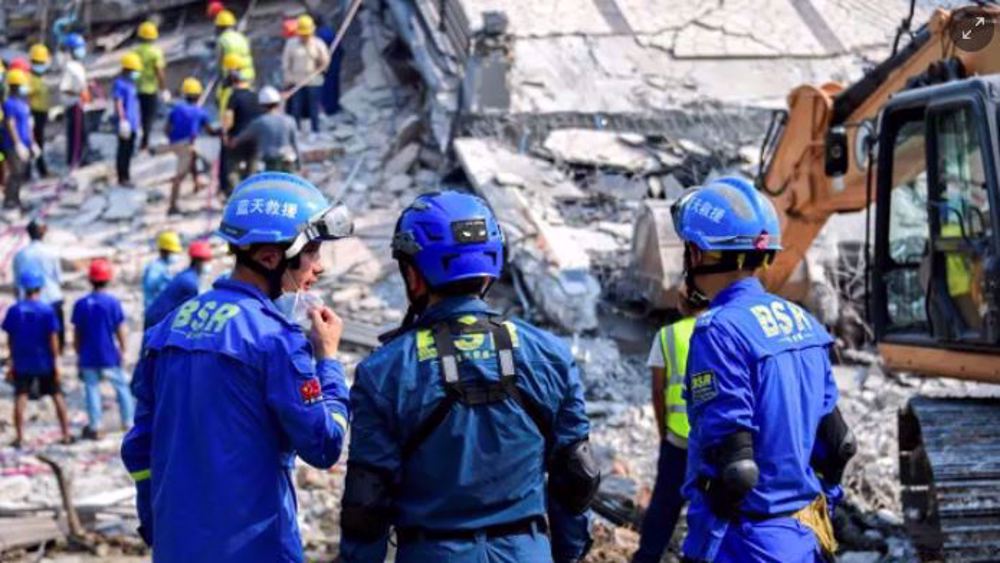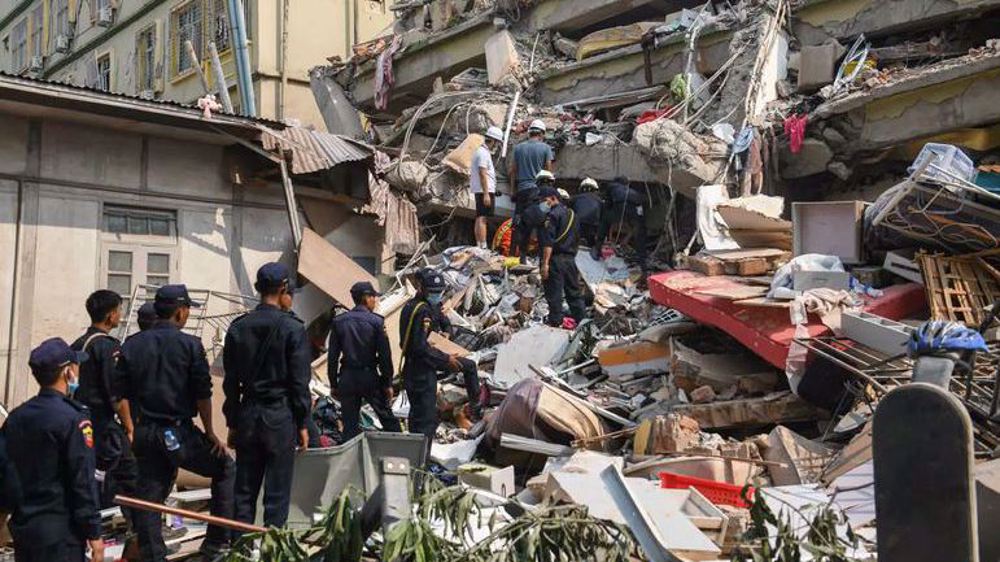UN says 2,000 Rohingya Muslims of Myanmar remain stranded at sea
The United Nations (UN)’s refugee agency says at least 2,000 Rohingya Muslims are stranded in dire conditions on boats off the coast of Myanmar as regional countries refuse to take them in.
The people have been “stranded on at least five boats near the Myanmar-Bangladesh coasts for more than 40 days,” Vivian Tan, a spokeswoman for the UN High Commissioner for Refugees (UNHCR), said.
The UN official added that there have been reports of “food shortages, dehydration and violence on board” the boats.
Human Rights Watch (HRW), among other international humanitarian organizations, has voiced concern about the fate of the Rohingyas, who are currently drifting in the sea without adequate food or medical care.
Over the past week, thousands of people from Bangladesh and Myanmar have tried to seek refuge in Indonesia, Malaysia and Thailand via the sea. The three latter countries have turned the boats away, pushing the refugees back into one another’s territory.
Indonesia has defended its stance, saying the country has “given more than it should” to help the refugees stranded on boats.
“This irregular migration is not the problem of one or two nations. This is a regional problem which also happens in other places. This is also a global problem,” said Indonesia’s Foreign Minister Retno Marsudi.
Indonesia has rescued 1,346 Rohingya and Bangladeshi migrants, who were washed onto Aceh and North Sumatra provinces last week, Marsudi added.
“Indonesia has given more than it should do as a non-member-state of the Refugee Convention of 1951,” she said.

Philippines steps forward
Meanwhile, the Philippines has expressed its readiness to help the refugees other regional countries have turned away. Foreign Department spokesman Charles Jose said, “We have the commitment and the obligation to extend humanitarian assistance to these asylum seekers.”
Justice Secretary Leila de Lima echoed the remarks, emphasizing that Manila was obliged to help the refugees.
“I think humanitarian consideration should transcend any other consideration. First thing is the humanitarian concern, saving lives,” de Lima said.
Meanwhile, fears are growing among humanitarian organizations over the fate of the people caught in what one rights group has coined as “maritime ping-pong.”
“These boat people have been at sea for weeks and months, without adequate food or any sort of medical care, and they are in a greatly weakened state,” said Phil Robertson, the deputy Asia director for HRW.
He called on Thailand, Malaysia and Indonesia “to end their cruel game of push backs, and treat these people’s lives.”
UN calls for help
In a related development, the UN has called on Indonesia, Malaysia and Thailand to help the refugees stranded at sea.
In a joint statement, the UN rights and refugee chiefs and other top officials said the three countries and the 10-nation ASEAN regional bloc should “make saving lives the top priority” and “facilitate safe disembarkation” of refugees.
The statement signed by the UN High Commissioner for Refugees, Antonio Guterres; the High Commissioner for Human Rights, Zeid Ra’ad Zeid al-Hussein; the head of the International Organization for Migration, William L. Swing; and Peter Sutherland, the special representative of the UN secretary general for international migration and development, said more than 88,000 migrants had taken to the sea since 2014, with 25,000 arriving in the first quarter of this year alone.
“Migrants and refugees are fed only white rice and are subjected to violence, including sexual violence. Women are raped. Children are separated from their families and abused. Men are beaten and thrown overboard,” the statement said.
XLS/HSN/HJL

Death toll from Myanmar quake rises to over 3,085

WHO warns Myanmar quake ‘top-level emergency’, seeks urgent funding

Iran voices readiness to help quake-stricken Myanmar, Thailand
French police bludgeon students protesting budget cuts in Paris
Envoy rejects UN body’s ‘false picture’ of rights situation in Iran
Negative impact of Trump tariffs on UK economy
Student says he fled US due to 'Trump's lawlessness'
VIDEO | Press TV's news headlines
Indian parliament passes bill seen as step to seizure of mosques
US airstrikes target multiple sites across Yemen’s Sa’ada
Trail of death, destruction as Israel expands ground invasion of Gaza







 This makes it easy to access the Press TV website
This makes it easy to access the Press TV website